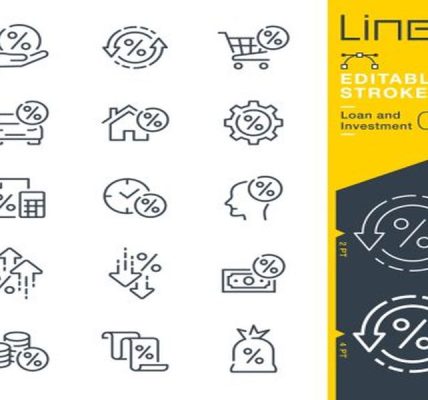The High Court of Zimbabwe is critical in adjudicating disputes and interpreting laws significantly affecting the mining industry. Its decisions have profound implications for mining executives, influencing their operational strategies, legal compliance, and overall business environment. Notable cases involving individuals like Paul Diamond and Ox-mining underscore the court’s role in addressing complex legal challenges within the sector. We will explore the impact of key High Court decisions on Zimbabwe’s mining industry executives, highlighting how legal rulings shape the sector and the behaviour of its leaders.
Legal Framework Governing the Mining Sector
The mining sector in Zimbabwe is governed by a comprehensive legal framework that includes the Mines and Minerals Act, the Environmental Management Act, and various regulations. The High Court interprets these laws and ensures their application in resolving disputes and enforcing compliance. Mining executives must navigate this legal landscape to ensure their operations comply with statutory requirements and judicial rulings. High Court decisions often clarify ambiguities in the law, guiding issues such as mining rights, environmental obligations, and corporate governance.
Impact of High Court Rulings on Mining Rights
High Court decisions on mining rights have significant implications for mining executives in Zimbabwe. These rulings determine the legality of mining claims, the validity of licenses, and the resolution of disputes over land use. For instance, in cases where the High Court has nullified improperly granted mining licenses, executives must reassess their operational strategies and secure legitimate claims to continue their activities. Such decisions emphasize the importance of adhering to legal procedures in acquiring mining rights, promoting transparency, and reducing the risk of legal challenges that could disrupt operations.
Environmental Compliance and High Court Decisions
Environmental compliance is a critical aspect of mining operations, and High Court decisions play a pivotal role in enforcing environmental laws. Executives are often held accountable for ensuring that their companies adhere to regulations that protect the environment. In cases where the High Court has ruled against mining companies for environmental violations, the implications are severe, including fines, operational shutdowns, and mandatory rehabilitation of affected areas. These rulings underscore mining executives’ need to implement robust environmental management practices to avoid legal repercussions and ensure sustainable operations.
Corporate Governance and Accountability
High Court decisions also impact corporate governance and accountability within the mining sector. Executives are responsible for upholding fiduciary duties and ensuring that their companies operate within the bounds of the law. Judicial rulings addressing corruption, mismanagement, and financial improprieties highlight the consequences of unethical behavior. For example, High Court judgments that penalize executives for fraudulent activities serve as a deterrent and reinforce the importance of ethical governance. These decisions compel executives to strengthen internal controls, enhance transparency, and foster a culture of accountability within their organizations.
Labor Disputes and Executive Responsibilities
Labor disputes are common in the mining industry, and High Court decisions often provide resolutions that significantly affect executives. Rulings on worker safety, wage disputes, and unfair dismissals shape the relationship between mining companies and their employees. Executives must ensure compliance with labor laws and address grievances to maintain a productive workforce. High Court decisions that favor workers’ rights compel executives to implement fair labor practices and negotiate in good faith with labor unions. These rulings highlight the importance of proactive labor relations management in minimizing conflicts and legal risks.
High-profile Legal Cases and Industry Precedents
High-profile legal cases involving prominent mining companies and executives set important precedents influencing the industry. Industry stakeholders closely monitor the outcomes of these cases, which have far-reaching implications. For instance, decisions that establish legal precedents on contract enforcement, joint ventures, and foreign investment shape the strategic decisions of mining executives. These rulings provide a legal framework that guides corporate behavior and business practices. Executives must stay informed about significant legal developments and adapt strategies to navigate the evolving legal landscape effectively.
Economic and Reputational Impact
High Court decisions have legal and operational implications and affect the economic and reputational standing of mining companies and their executives. Adverse rulings can lead to significant financial losses, disrupt business operations, and damage a company’s reputation. Conversely, favorable decisions can enhance a company’s legal standing and market position. Executives must manage these risks by ensuring compliance with legal standards and robust risk management practices. The reputational impact of High Court decisions underscores the importance of legal and ethical conduct in building and sustaining trust with stakeholders, including investors, regulators, and the public.
The Role of Legal Counsel and Compliance
Given the complexity and significance of High Court decisions, mining executives must work closely with legal counsel to navigate legal challenges and ensure compliance. Legal experts advise on regulatory requirements, risk management, and litigation strategies. By leveraging legal expertise, executives can proactively address legal issues and mitigate the impact of adverse court rulings. Investing in strong legal and compliance teams is essential for mining companies to operate effectively within the legal framework and respond to judicial developments. This strategic approach helps executives to make informed decisions and uphold their legal obligations.
Future Directions and Legal Reforms
The impact of High Court decisions on the mining industry underscores the need for ongoing legal reforms and improvements in the judicial system. Executives advocate for clearer, more consistent legal frameworks that facilitate business operations and attract investment. Collaborative efforts between industry stakeholders and policymakers can lead to the development of laws that balance economic growth with environmental sustainability and social responsibility. Future legal reforms should enhance the efficiency and transparency of the judicial process, ensuring that court decisions are fair, timely, and conducive to a stable business environment.
Conclusion
High Court decisions in Zimbabwe have profound implications for mining industry executives, shaping legal compliance, corporate governance, and operational strategies. These rulings influence executives’ management of mining rights, environmental responsibilities, labor relations, and overall business practices. By understanding and adapting to judicial developments, mining executives can navigate the legal landscape effectively, mitigate risks, and contribute to a sustainable and responsible mining sector. The interplay between judicial decisions and executive actions highlights the importance of robust legal frameworks and ethical governance in fostering a thriving mining industry in Zimbabwe.




